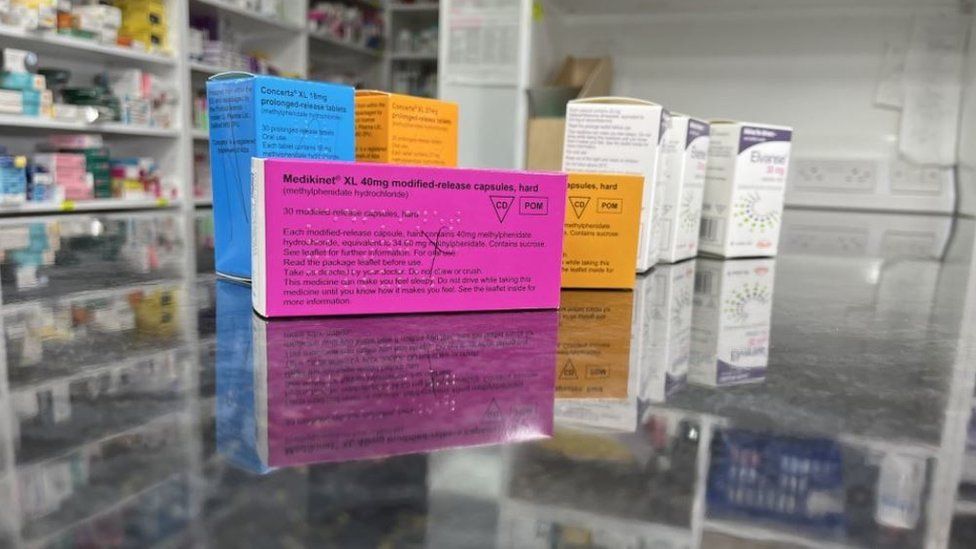ADHD medication shortage leads to fears over people's jobs
- Published

A charity for people with Attention Deficit Hyperactivity Disorder (ADHD) says it fears many have lost their jobs as they cannot get their medication.
Henry Shelford, who runs ADHD UK, says many employers have lost patience with workers who have faced interruptions to their medicine supply since the autumn.
The medication helps manage symptoms of the condition - which can include an inability to focus on a single task.
The government says it is trying to solve the issue as quickly as possible.
Production issues and a rapid increase in people being diagnosed with the condition have both been blamed for the shortage.
"We were told this would pretty much be over by now," Mr Shelford told the BBC's Access All podcast. "We're still seeing huge, huge problems, and I'm very worried about it."
The effect on people's ability to work is a particular concern for him.
The charity estimates that 1.9 million adults in the UK have ADHD, and a recent survey it conducted attracted responses from more than 2,000 people.
Six per cent reported that they had lost their jobs because of the medication shortage.
According to Mr Shelford, that suggests that hundreds may be out of work because they cannot get their normal prescription.
"It's been brutal," he says. "I spoke to someone who lost their entire career. Their boss came to them and said 'we talked about this, you said this was sorted, but it hasn't been, you're out'."
The Access All podcast heard from 20 other people who had encountered issues in the workplace.
"I was made to feel ashamed about asking for help," says one woman, who asked to remain anonymous.
She told how she had approached her employer to ask for adjustments to be made to her working pattern to accommodate the shortage of drugs.
The adjustments she asked for included being allowed to work flexibly, because without her medicine, her energy and concentration levels varied dramatically.
As her company was a 24-hour operation, she was hoping her proposals would be accepted, but her optimism was misplaced.
"They said they would not be able to accommodate my requests," she says. "In January I was asked to leave the company with a settlement.
"They said that if I didn't take it, I would be taken through medical capability proceedings."
Listen to the Access All podcast to hear more.
Cerys Rees, a youth worker based in London, also has ADHD.
She said that although her employer had been sympathetic, she had considered resigning because she had become so frustrated with her own performance at work since the shortage began.
"At the lowest point, I was short with my colleagues and I had a lack of focus and wasn't seeing anything the whole way through," she says. "I didn't feel capable of doing my job any more, a job that I absolutely love."
For an employer, trying to address a temporary situation like the medication shortage can be "a balancing act", says Lee Jeffcott, a specialist in employment law at Brabners solicitors.
"Can the employer make reasonable adjustments, such as tolerating an absence level that's not ideal for a shorter period of time, for example?" he suggests.
As it is unclear how long the situation will continue, he recommends employers to review matters at regular intervals together with employees who are affected.
"Ultimately, if the employer feels that the adjustment is no longer reasonable as it's having an adverse effect on the business, then a line can be drawn at that point," he adds.
The medication shortage is expected to continue for some weeks to come.
Takeda, the company which produces Elvanse, a leading drug used to treat ADHD, told the BBC: "We are anticipating that there will be intermittent disruption across our ADHD products into April 2024.
"For full clarity, this does not mean that no stock is available until April 2024, but that supply will be available on an intermittent basis."
You can listen to the podcast and find information and support on the BBC Access All page. You can contact Daniel with a story by emailing [email protected]
Related Topics
- Published24 January
- Published22 February
- Published6 October 2023